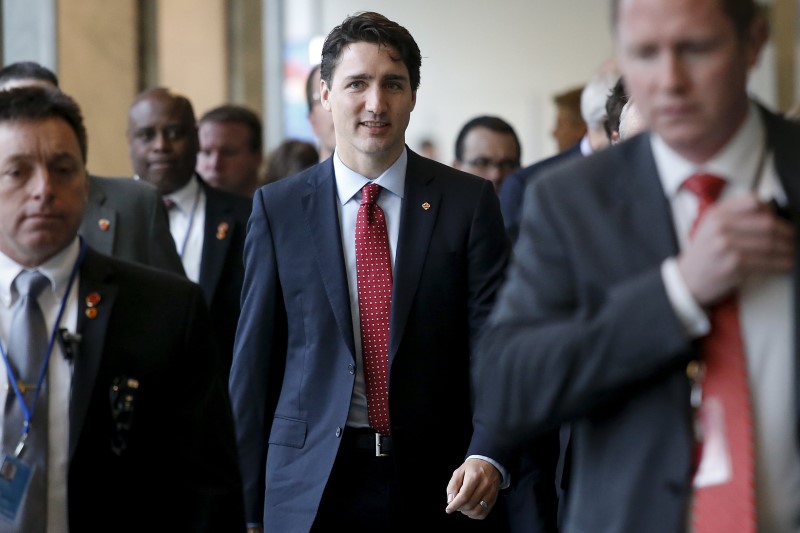By Manolo Serapio Jr
MANILA, Nov 14 (Reuters) - Canadian Prime Minister Justin Trudeau raised the plight of Rohingya refugees and extra-judicial killings in the Philippines at a summit of Asian and Western leaders on Tuesday, sensitive human rights issues skirted by almost all the others.
There was no pressure from U.S. President Donald Trump over the Philippines' bloody war on drugs during a meeting on Monday with President Rodrigo Duterte on the sidelines of the summit.
A joint statement after the meeting said the two sides "underscored that human rights and the dignity of human life are essential, and agreed to continue mainstreaming the human rights agenda in their national programmes."
However, Trudeau said that during his conversation with Duterte in Manila, he "mentioned human rights, rule of law and specifically extra-judicial killings as being an issue that Canada is concerned with."
"The president was receptive to my comments and it was throughout a very cordial and positive exchange," Trudeau told a news conference.
More than 3,900 pushers and users have been killed in the war on drugs that Duterte declared when he took office last year. His government says the police act in self-defence, but critics say executions are taking place with no accountability.
Duterte cursed Trump's predecessor, Barack Obama, last year for raising concerns about the war on drugs and he subsequently declared that he was breaking with the United States, a close ally of the Philippines since World War Two. Trump, by contrast, said on Monday he had a "great relationship" with Duterte.
ROHINGYA CRISIS
Trudeau said he also met Myanmar leader Aung San Suu Kyi and raised the plight of Rohingya refugees, although he did not mention the Muslim minority by name.
"This is a tremendous concern to Canada and to many, many countries around the world," he said.
The government in mostly-Buddhist Myanmar regards the Rohingya as illegal immigrants from Bangladesh and does not recognise the term.
Over 600,000 Rohingya have fled to refugee camps in Bangladesh since military clearance operations were launched in response to attacks by Rohingya militants on Aug. 25.
The plight of the Rohingya has brought outrage from around the world and there have been calls for democracy champion Suu Kyi to be stripped of the Nobel peace prize she won in 1991 because she has not condemned the military's actions.
Some countries in the 10-member Association of Southeast Asian Nations (ASEAN), particularly Muslim-majority Malaysia, have voiced strong concern over the issue recently.
However, in keeping with ASEAN's principle of non-interference in each others' internal affairs, it appeared to have been put aside at the summit, which brought Southeast Asian nations together with the United States, Japan, China, India, Australia and Canada.
The summit ends later on Tuesday, also bringing to a close Trump's marathon trip to Asia that took him to Japan, South Korea, China and Vietnam as well as the Philippines.
